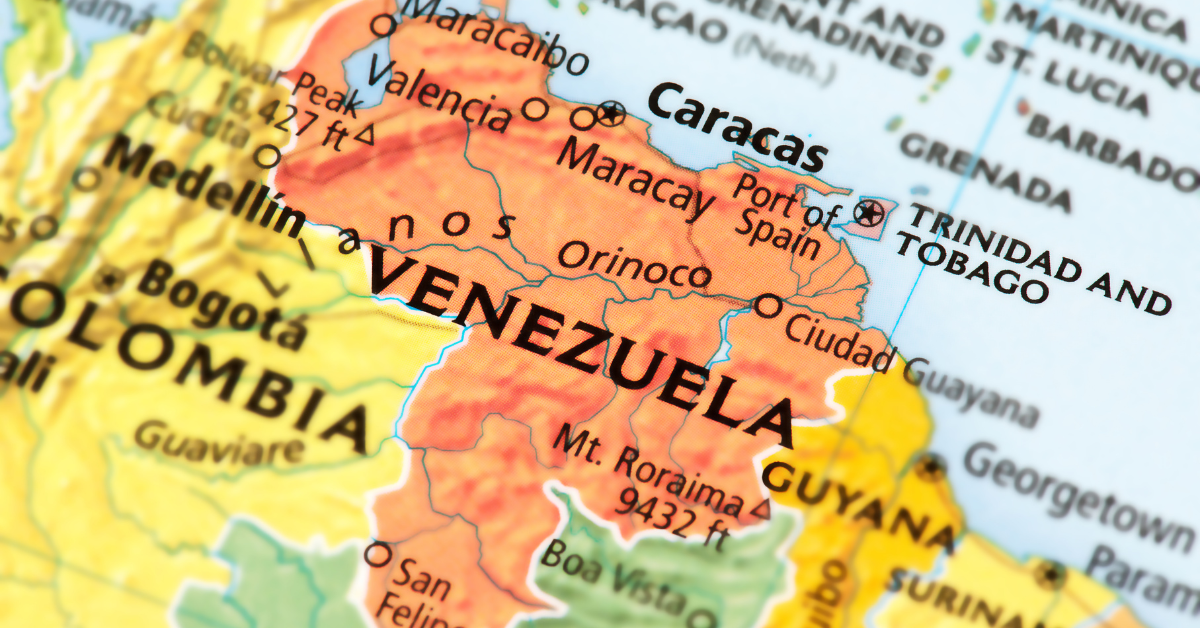In Japanese, Venezuela is usually written in katakana as “ベネズエラ”, but sometimes it appears as “委内瑞拉” in Chinese characters. This form is based on phonetic transcription rather than the original meaning of the characters, and it originates from Chinese transliteration. This article explains the background of this notation and its role in Japanese, in a way that is easy for foreigners to understand.
Origin of the Expression “委内瑞拉”
Writing Venezuela as “委内瑞拉” in kanji is the result of matching the sounds of the name with Chinese characters. In Chinese, there is a tradition of transcribing foreign place names using characters for their sounds, rather than their meanings.
For example:
| Country (Japanese) | Kanji in Chinese | Pronunciation (Pinyin) | Sound Correspondence |
|---|---|---|---|
| America | 美国 | měiguó | “Ame” → 美, “Rika” → 国 |
| England | 英国 | yīngguó | “Igi” → 英, “Risu” → 国 |
| France | 法国 | făguó | “Fura” → 法, “nsu” → 国 |
| Venezuela | 委内瑞拉 | wěinèiruìlā | “Venezuela” reproduced phonetically |
The Chinese pronunciation “wěi nèi ruì lā” was transcribed into characters, producing “委内瑞拉.”
Meanings and Roles of Each Kanji
The four characters of “委内瑞拉” were chosen to reproduce the sound, but each has its own original meaning.
| Kanji | Pronunciation | Original Meaning | Sound Representation |
|---|---|---|---|
| 委 | wěi | To entrust, to delegate | Ve / Be |
| 内 | nèi | Inside, internal | Ne |
| 瑞 | ruì | Auspicious, lucky | Zue |
| 拉 | lā | To pull, to drag | La |
Here, the important point is that the meanings of the characters have nothing to do with the country itself. For example, 瑞 (auspicious) has a positive connotation in East Asia, but its use here is coincidental.
Comparison with Other Countries’ Kanji Representations
Like Venezuela, other countries are also transcribed into kanji phonetically. However, in some cases, both sound and meaning are considered.
| Country | Kanji Representation | Feature |
|---|---|---|
| America | 美国 | Combines sound with the meaning “beautiful country” |
| Germany | 德国 | Uses the character 德 (virtue), reflecting both sound and positive meaning |
| England | 英国 | 英 represents both sound and “excellence” |
| Venezuela | 委内瑞拉 | Composed purely of sound; no connection to meaning |
Thus, “委内瑞拉” is a prime example of a transcription based purely on sound.
Usage of “委内瑞拉” in Japanese
In Japanese, Venezuela is almost always written as “ベネズエラ” in katakana. Newspapers, TV, textbooks, and maps consistently use katakana. However, the kanji form “委内瑞拉” occasionally appears in academic writing or in references to Chinese texts.
During the Meiji and Taisho periods in Japan, it was common to attempt to write foreign names in kanji. America was written as “亜米利加,” and Italy as “伊太利亜.” In this context, “委内瑞拉” also spread and has survived in certain limited contexts.
Here is the distinction in usage:
| Writing Style | Usage Context | Frequency |
|---|---|---|
| ベネズエラ (Katakana) | Newspapers, TV, textbooks | Very high |
| 委内瑞拉 (Kanji) | Historical texts, academic works | Limited |
In Japanese, katakana is the dominant everyday representation, while the kanji form is supplementary.
Key Points for Foreign Learners
Foreign learners often misunderstand the relationship between the kanji and the country. The characters of 委内瑞拉 each have meaning, but they do not symbolize Venezuela itself.
Key points to remember:
| Key Point | Explanation |
|---|---|
| Kanji names prioritize sound | Characters are chosen to approximate pronunciation |
| Meanings are irrelevant | The meanings of 委 or 瑞 have no relation to the country |
| Katakana is standard in Japanese | “委内瑞拉” is almost never used in daily life |
| Historical background matters | The Meiji-era translation culture influenced its use |
Characteristics of Country Names in the Kanji Sphere
The Venezuela example shows that kanji transcriptions of foreign names focus on sound. This practice developed because Chinese is a logographic script, yet it needed a way to incorporate foreign words.
In diplomacy and official contexts, characters are often chosen not only for their phonetic closeness but also for positive connotations. This is why America became 美国 (beautiful country) and England became 英国 (excellent country). Venezuela, on the other hand, represents the pure phonetic approach.
Conclusion
The reason Venezuela is written in kanji as “委内瑞拉” is that it is a phonetic transcription from Chinese. The four characters were chosen to match the sounds, not to reflect meaning. In Japanese, katakana is the standard, while the kanji form is seen mainly in academic or historical contexts.
For foreign learners, it is important to recognize that kanji here do not describe the country’s traits but simply reproduce its sound.
Understanding this helps learners appreciate the role of kanji in East Asian cultures and the history of language contact. The case of Venezuela illustrates how phonetic adaptation and cultural tradition intersect, making “委内瑞拉” an interesting example of how writing systems handle foreign names.






